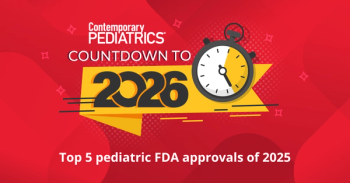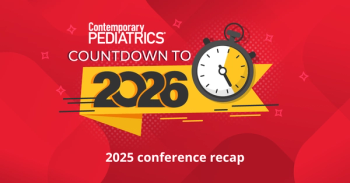
The vaccine discussion: A frustrating but necessary investment in time
Pediatricians spend precious time talking with parents whether they’re vaccine hesitant or vaccine opposed. Yet the time pediatricians spend trying to understand and educate families who are hesitant or against vaccinating their children is important and can be effective, according to Tina Q. Tan, MD.
Pediatricians spend precious time talking with parents whether they’re vaccine hesitant or vaccine opposed.
Yet the time pediatricians spend trying to understand and educate families who are hesitant or against vaccinating their children is important and can be effective, according to Tina Q. Tan, MD, professor of Pediatrics at Northwestern University Feinberg School of Medicine and a Pediatric Infectious Diseases attending at Ann and Robert H. Lurie Children’s Hospital of Chicago, Illinois.
“For the vaccine-hesitant people, the major reason they’re hesitant is either a friend has basically told them vaccines are dangerous, or parents have been reading information on the Internet and they’re just not quite sure what to think,” Tan says.
Even parents who are favorable to vaccination can be confused by the ongoing debate, leading them to question their choices, researchers write in an article published last year in Cureus.1
“Many parents lack basic knowledge of how vaccines work, as well as access to accurate information explaining the importance of the process,” according to the article.1
Often pediatricians can turn around the vaccine-hesitant by educating-not lecturing-parents about their concerns, Tan points out.
Challenges to vaccination
Parents who refuse vaccines or refuse the recommended vaccine regimen are far more challenging for pediatricians because these parents are unlikely to budge even after pediatricians talk with them at length about vaccine safety and benefits. Many pediatricians end up dismissing these families from their practices, with good reason, Tan says.
“These children pose a public health risk to other kids that are in the waiting room that are either too young to be immunized or who have medical conditions that prevent them from being immunized,” she says. “I understand it really is a quandary.”
With time, patience, and good communication techniques, however, there is a chance that pediatricians might convince even the most adamant parents that they should have their children vaccinated.
“The one thing you don’t want to do is get mad, even though that’s a natural reaction,” Tan says. “The greatest tip I can give is to find out why the person doesn’t want to vaccinate the child. Listen to them. Be empathetic about their fears and then provide them with accurate information. Talk with them about why vaccines are so important.”
Importance of trust
Empathy and respect can lead to trust, and studies show that maintaining trust is important for physicians trying to sway families who might be opposed to vaccinating their children.2
Whereas the chances of converting adamantly opposed parents are slim, those individuals make up a small proportion of all parents who are concerned enough about vaccinations to question their value, according to Tan.2
Most of the process involves pediatricians’ verbally discussing vaccines with parents, Tan says, but there are free, credible materials that help to back up those talks.
References:
1. Hussain A, Ali S, Ahmed M, Hussain S. The anti-vaccination movement: a regression in modern medicine. Cureus. 2018;10(7):e2919.
2. Shen SC, Dubey V. Addressing vaccine hesitancy: clinical guidance for primary care physicians working with parents. Can Fam Physician. 2019;65(3):175-181.
Newsletter
Access practical, evidence-based guidance to support better care for our youngest patients. Join our email list for the latest clinical updates.








